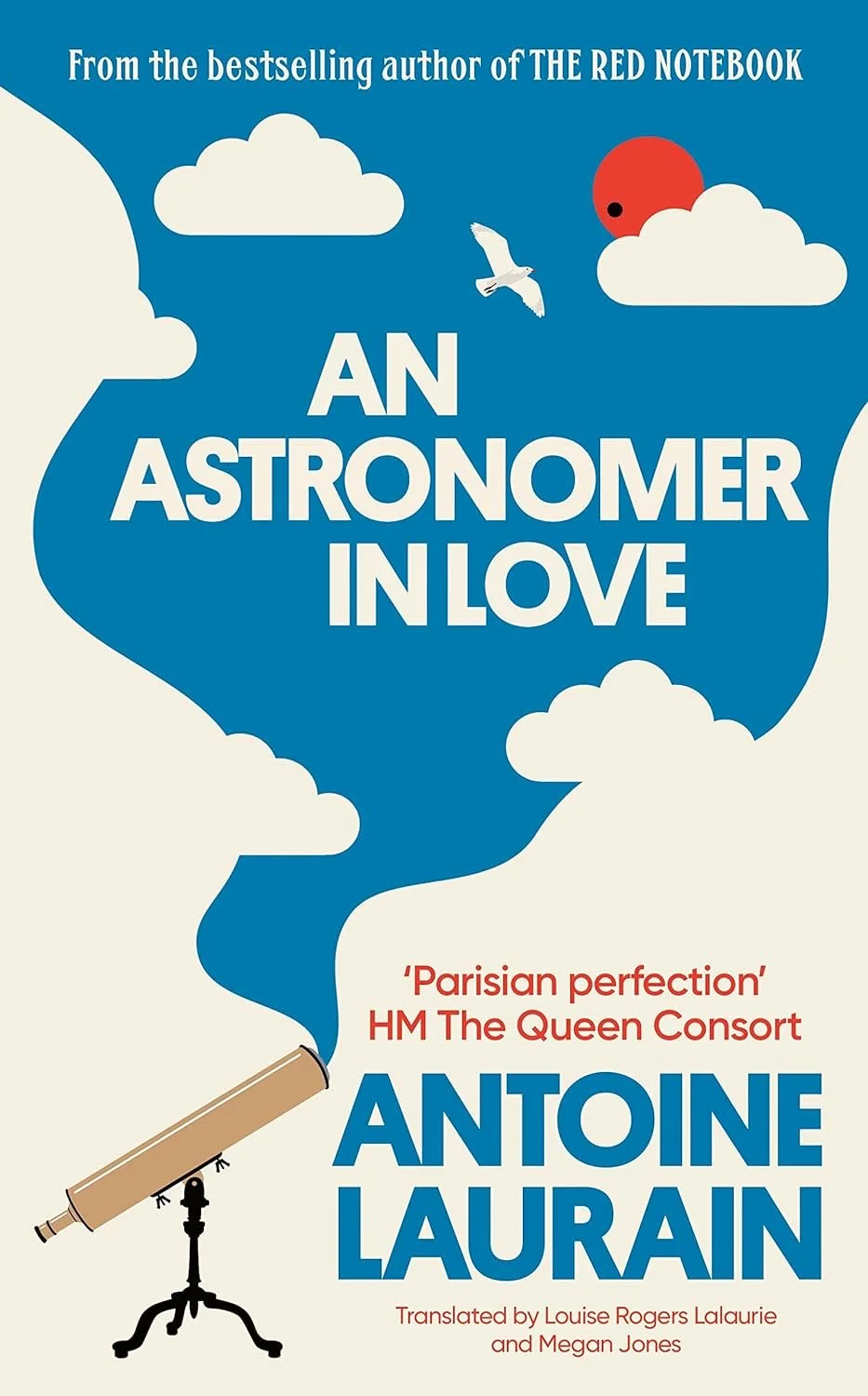An Astronomer in Love, Antoine Laurain
From the age-old tales of Shakespeare to modern novels such as David Nicholls’ One Day, fate is the concept around which most great stories of love and life revolve. As encapsulated by its French title Les Caprices d’un Astre, which loosely translates to ‘The Whims of a Star’, Antoine Laurain’s An Astronomer in Love is no exception to this tradition. Translated by Louise Rogers Lalaurie and Megan Jones, this delightful novel serves as a reminder of the beauty which can blossom from the most unexpected of circumstances.
Alternating between 18th century India and 21st century Paris, An Astronomer in Love weaves the narratives of Guillaume le Gentil, astronomer to King Louis XV, and Xavier, an estate agent and father to his 11-year old son, Olivier. The first narrative is inspired by the real-life tale of le Gentil, who embarked on his voyage to Pondicherry on the south-east coast of India in 1761 to observe and document the transit of Venus across the sun. This astral event is of extreme importance to le Gentil due to its rarity, as a pair of transits occurs twice within 10 years then not at all for over a century. However, due to a stroke of bad luck, what the astronomer intended to be a relatively short voyage, ended up as a remarkable expedition that lasted eleven years.
Adding an extra dimension to this already captivating story, the reader is then whisked forwards 250 years to Paris. Here we are introduced to Xavier, who is attempting to navigate love, life, and fatherhood as a recent divorcée; a mission which only gets more complicated upon meeting Alice, a woman with a zebra in her apartment. Although their tales span two different centuries and continents, these two seemingly disconnected tales are united by Xavier’s discovery of Le Gentil’s brass telescope in one of his client’s apartments. From here, it becomes clear that these two narratives are more connected than they may first appear.
This is my second Laurain novel, the first being The Red Notebook, which I read back in July 2021. Whilst I noted that The Red Notebook could be likened to an apèrtif – a charming vignette into some Parisian magic that leaves the reader both refreshed and thirsty for more – the beautifully constructed An Astronomer in Love feels structurally more sophisticated, and so more satiating. Assisted by the brevity of its short chapters, the novel flows gracefully between the two narratives in a way that seamlessly reinforces the thematic interconnectivity between the two men’s stories. Even details which seem insignificant at first, such as the scene in which Xavier assists the French secret service, slot carefully into place to heighten the reader’s emotional response. Without giving much away, every element of the novel’s narrative is carefully woven together to create an ending that is both cathartic and hopeful, emphasising the themes of destiny and hope which form the novel's core.
For me, the standout aspect of the novel was its strong sense of heart. Although the novel does follow a fairly eventful plot, namely the extraordinary events of Le Gentil’s lengthy expedition and the quirkiness of Xavier’s love story, Laurain does not compromise on the development of his characters or the exploration of his key themes. The narrative regularly zooms in on heart-warming moments, such as Xavier’s effort in being a good father to his young son, his conversations with the enigmatic Luigi, and Guillaume’s encounter with a dodo – all of which work to create a rounded, hopeful novel. As is clear from his whimsical style and regular injections of wisdom, Laurain’s primary focus is undoubtedly these matters of the heart that constitute an integral part of the human experience in spite of time, geography, and individual circumstance.
As was the case with The Red Notebook, I finished An Astronomer in Love with a more optimistic outlook and a renewed sense of faith in those enigmatic forces of fate and chance. To echo a line from one of Xavier’s guided meditations, this delightful novel provides a welcome escape from the stresses of modern life and reminds the reader to simply set them aside.
Editorial Picks




